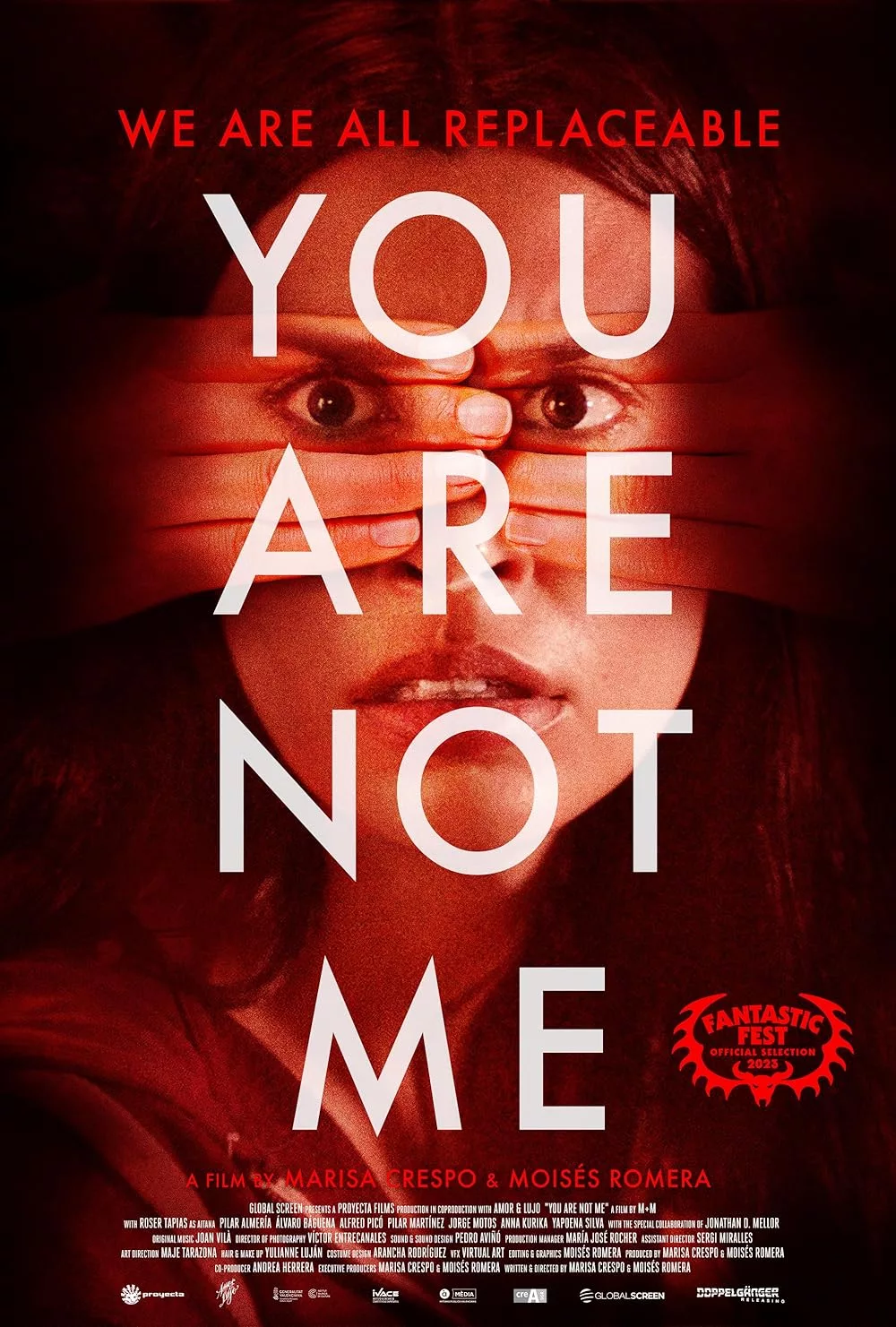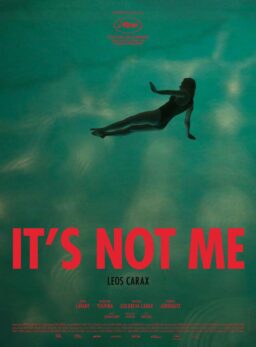Directors Marisa Crespo and Moisés Romera fundamentally understand that there’s no greater hell than family gatherings during the holidays, and their film “You Are Not Me,” explores the ways unspoken tensions and unresolved histories, shaded by physical distance between family members, can crescendo into both physical and verbal violence. Dually, like “Christmas Eve in Miller’s Point,” another unconventional Christmas flick, “You Are Not Me” revels in the inherent loneliness of the holidays, how there’s a particular type of isolation that cuts deeply when you’re surrounded by people on all sides and still feel alone. It’s the balance of these two that elevates the film beyond standard holiday horror fare, and makes this worth viewing even if the film meanders a bit too much before reaching its trippy, blood-soaked conclusion.
Starting off like a Hallmark movie before descending into something resembling more home invasion with a twist of folk horror, the film focuses on Aitana (Rosier Tapias), her wife Gabi (Yapoena Silva), and their adopted baby, João, as they go to surprise Aitana’s family for the Christmas holidays. Aitana has not seen her family in person for three years and is excited to introduce Gabi and João to her parents. Their relationship was tense after Aitana’s parents refused to accept that their daughter was queer, and Aitana hopes that seeing her family in person, coupled with some holiday magic, might lead to some sort of acceptance, possibly even reconciliation. Things quickly go awry when Aitana, Gabi, and João see that another woman, Nadia (Anna Kurikka) is staying at Aitana’s parents’ house.
For intents and purposes, Nadia has “replaced” Aitana, with Aitana’s parents frequently babying her in front of their actual daughter. This is exacerbated even further by how cold Aitana’s parents are to their daughter after the gift of her surprise arrival. They can barely hide their annoyance or inconvenience, and the parlance of gratitude is weaponized into something more sinister (“You shouldn’t have come” sounds less like a gesture of unexpected thanks and more like a hostile directive). Aitana and Gabi are resolved to spend the holidays together as a family despite such incivility, but begin to suspect there may be something more to Nadia and her parents’ relationship than appears on the surface.
While Aitana spends most of the film trying to understand why her xenophobic parents have replaced her with someone like Nadia, there’s no ambiguity to her parent’s thoughts about her sexuality: they disprove, with the sort of barely quiet disregard that masks a deeper dissatisfaction. Nadia, whom they gift Aitana’s never-worn wedding dress, is an obvious stand-in for their desire to have a daughter who fits into heterosexual norms, but what’s most disturbing is that Aitana’s parents are so confident in their actions that it borders on delirium. It makes moments like them matter-of-factly suggesting that Aitana and Gabi stay at a hotel while letting Nadia stay in Aitana’s room upon the couple’s first arrival feel like a disturbing sort of madness.
The central mystery revolves around Nadia’s identity and why Aitana’s parents have so willingly embraced her, and the film struggles to find new ways to spin out this narrative thread in an engaging manner for its whole runtime. Still, Crespo and Romera keep the unease coming so that even if it feels a bit repetitive, it’s never trite. They craft some haunting shots through the way they let their camera linger for a beat too long in moments where it’d be natural to cut away, almost as if encouraging us to dare something vile to come out from the darkness (a sequence where Aitana gets a glass of water in a basement like area is an example of a seemingly normal scene being stretched to a nail-bitingly tense length). Joan Vilà’s score masterfully employs strings to grating effect, often sounding like a chorus of newborns that refuse to be comforted as if they’re plagued by an unseen force.
For the most part, the film keeps its violence to one-off dream sequences and caustic words from families, probing how those expectations can be wielded as their own kind of weapon. This is all embodied by Tapias, who is a revelation here as Aitana. Aitana maintains a steely confidence despite her attempts to accommodate her family (there’s a sense her days of forsaking who she is to please her family are long gone) and she captures so well how we can revert to our old selves whenever we’re back home. As a whole, the film is paced with a bit too much restraint, but, ultimately, “You Are Not Me” is one of the better feel-bad movies of this year’s holidays, one that understands that family’s embrace may be more suffocating than loving.


















